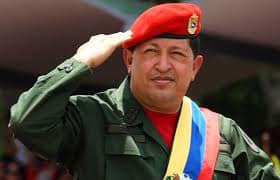There are no products in your shopping cart.
| 0 Items | £0.00 |


Ayo Akinfe
[1] When Hugo Chavez assumed the presidency of Venezuela in 1999, he launched his Revolución Bolivariana, making sweeping changes to the cultural, social and political norms of the country
[2] These changes began with the economic and political inclusion of Venezuela’s lower classes. He brought millions of rural poor into mainstream Venezuelan society
[3] Under Chávez, Venezuela expanded low-income housing, made healthcare and medicine accessible to much of the population and subsidised food distribution for those in need
[4] These programmes, especially in rural areas, made social services and government jobs available to large swathes of the population, resulting in a drop in the poverty rate from 48.6% in 2002 to 29.5% in 2011
[5] Venezuela’s infant mortality rate also declined, while literacy rates and access to free public education increased, according to data aggregated by Index Mundi
[6] Under Chavez, Venezuelan unemployment dropped from 14.5% of the total labour force in 1999 to 7.6% in 2009
[7] Gross domestic capital (GDP) per capita rose from $4,105 in 1999 to $10,801 in 2011
[8] Poverty decreased dramatically. In 1999, 23.4% of the Venezuelan population were recorded as being in extreme poverty but this fell to 8.5% in 2011 according to official government figures
[9] By 2011, Infant mortality had dropped dramatically. It fell from a rate of 20 per 1,000 live births in 1999 to a rate of 13 per 1,000 live births in 2011
[10] Opec put Venezuela’s net oil export revenues at $60bn in 2011, compared with just $14.4bn in 1999